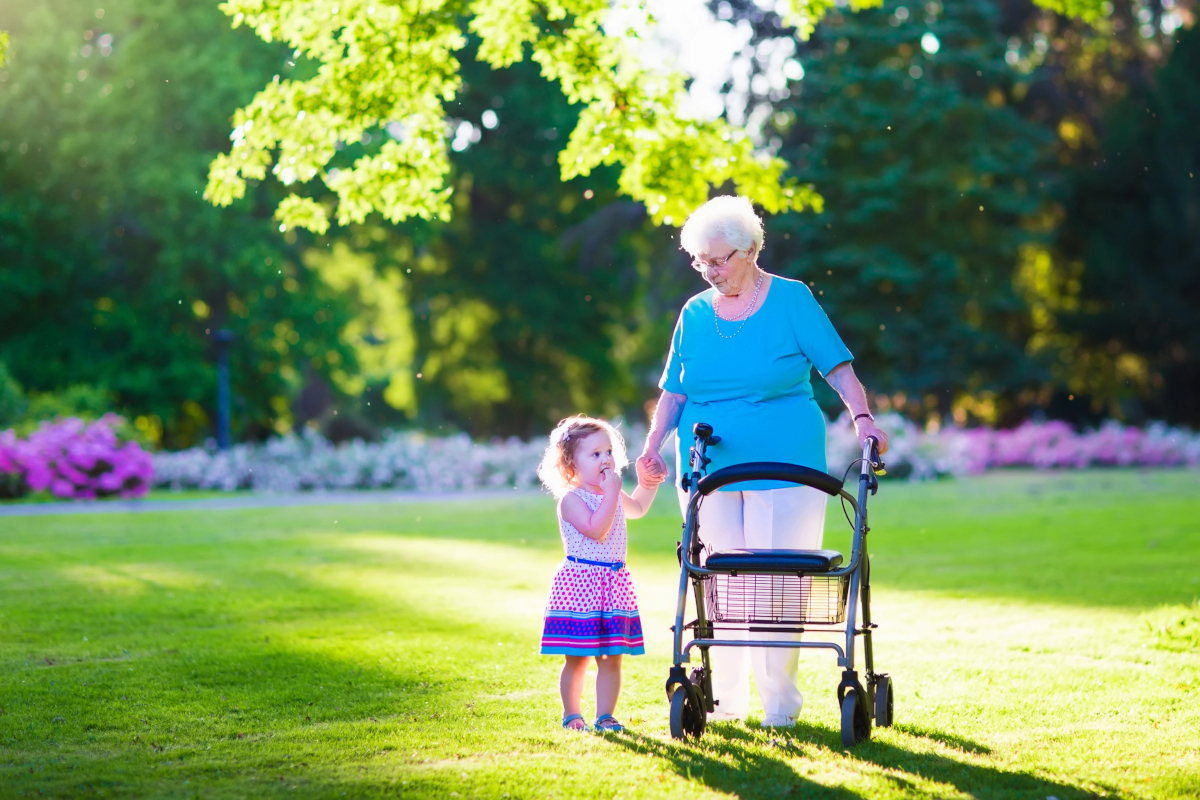Most people love music at any age. When you consider your past, how many songs can you think of that remind you of special people and places? How many events and gatherings were set against the of music?
Most life events are accentuated by sound. Brides usually walk down the aisle to the Bridal Chorus followed by a hand-picked playlist for the reception. Pomp and Circumstance is favored for graduation ceremonies. And many families play music at reunions, holiday events, dinners, and other special occasions.
And then there are the songs that resonate with us as individuals. Most people can name at least one or two genres of music that they love.
Listening to music increases blood flow to the parts of the brain that create and control emotion. The limbic system lights up when we hear music. This system is responsible for controlling memory and processing emotions.
Music is something that integrates into our lives. It’s no surprise that it can also inspire us and trigger our brains to think about and feel certain things. That’s what makes it such a powerful resource for senior citizens in assisted living communities.
Aging adults who want to stay healthy probably ask doctors about things like how to keep your bones strong after age 65. While this is important, we should also not forget the mental and physical benefits of music.
Music Improves Sleep Quality in Senior Citizens
Many older adults experience sleep problems. About half of all senior citizens report insomnia. This can occur for many different reasons, including:
- Diabetes
- Heart failure
- Respiratory disease
- Dementia
- Chronic pain
- Arthritis
- Depression
- Anxiety
- Stress
- Medication side effects
- Frequent nighttime urination
Insomnia can also happen due to lifestyle behaviors. Seniors who take naps, consume caffeine, smoke, or live sedentary lives can experience interrupted rest.
According to the Institute for Healthcare Policy and Innovation, 98% of seniors reported at least one health-related benefit from listening to music. Approximately 46% of adults between the ages of 50 and 80 said that they sang at least a few times a week while 17% played an instrument at least a few times each year.
Assisted living facilities are designed to provide comfortable, safe places for seniors. Moving into an elder care community can help ease mental health related causes of insomnia.
Seniors who experience changes in sleep patterns or who feel fatigued should start with a doctor’s visit. Your medical professional can rule out any underlying causes. Music can promote better sleep quality, but existing health problems should be addressed first.
Music Boosts Mood and Helps Prevent Depression
Emotions may be hard to describe at times, but they have very real causes within our bodies. Listening to music can stimulate the release of serotonin and endorphins. Both chemicals make us feel good. It can help alleviate tension, anxiety, and other negative emotions.
Music can also serve as a distraction from things that make us worry. Seniors often face mental health challenges. Medical conditions can put a strain on mental wellbeing. Sometimes friends or family pass away or changes in mobility can cause a person to feel depressed.
While music can’t fix everything, it can help lift a senior up. It gives their mind something to focus on right now, bringing them back into the present moment. Having a way to combat negative feelings and boost mood leads to a better overall outlook on life.
This is especially important considering the effect depression has on longevity. The Cardiovascular Health Study released a report that found high levels of depression are a risk factor in senior mortality.
A total of 5,201 men and women aged 65 and older were studied. Nearly 19% passed away over six years. Participants with high baseline depressive symptoms had a 23.9% mortality rate while those who had low baseline depression were at a 17.7% mortality rate.
Music Reduces Anxiety and Feelings of Isolation
Music stimulates the brain in positive ways, which can help seniors overcome feelings of anxiety and isolation. Isolation is another risk factor for depression, so it is something that should be managed carefully.
Seniors in assisted living have the advantage of a community of peers close by. They can access shared spaces to meet new people and expand their social circles, something that can be difficult for seniors who live independently.
Music can serve another purpose in these situations. It can give residents in assisted living common ground to build friendships. Shared interests are a wonderful topic of discussion and listening to music can be a healthy group activity.
Many assisted living homes host on-site concerts or play music in communal spaces. Everyone can reap the physical and mental health benefits while enjoying a favorite pastime.
Music Improves Memory in Senior Citizens
Memory loss is a concern for many older adults. It can be a normal part of aging, or it can be a symptom of a serious problem like dementia. Memory loss can also occur due to a brain injury or mild cognitive impairment.
Senior citizens experiencing memory loss should speak to their medical care provider to ensure that it’s natural aging and not an underlying condition.
Listening to music stimulates dormant neural pathways. These become active, building new connections that lead to improved cognitive function.
Music Improves a Senior’s Concentration
Human beings are capable of learning new things at any age. The saying “You can’t teach an old dog new tricks” is inaccurate. It may take more time for some, but it is possible to expand your knowledge or develop a new skill as an older adult.
Music can help with this process. Listening to your favorite songs activates both sides of the brain at the same time, maximizing your capacity for learning while improving memory.
This leads to better attention and concentration. When you can concentrate, you will be ready to absorb and retain more information. This can also increase alertness and improve a senior’s ability to ignore distractions.
Playing Music Can Improve Senior Dexterity
Music brings many mental health benefits, but it also helps with physical wellness. Playing an instrument can improve dexterity and strength.
Many instruments require a specific position to play properly. This usually requires good posture, the right breathing, and good hand-eye coordination. Plucking strings or pressing tabs work the fingers, strengthening and stretching them.
Playing instruments leads to better coordination and balance.
Seniors who don’t know how to play an instrument can check out local schools and universities. Many host senior classes at a discount or for free that cover a variety of topics. You can also speak to your assisted living facility staff to see if they are aware of local programs for seniors who want to learn to play.
Assisted living residents who listen to music are also inspired to move. They may get up and dance, or move to the beat while seated if mobility is a concern. If you are starting your fitness journey as a senior citizen, consider dancing.
Music Helps Senior Citizens with Dementia
The benefits listed above are helpful for any senior, but especially those with dementia. Cognitive decline robs a person of their ability to recall memories and function independently. Music may not stop the disease, but it can help slow down the effect it has on elderly patients.
Music therapy is often used to ease the symptoms of dementia. Even seniors in the late stages of the disease often show signs of recognition when hearing beloved songs. They may sing or tap to the beat.
Listening to music has also been shown to reduce the agitation and stress that can come with dementia.





